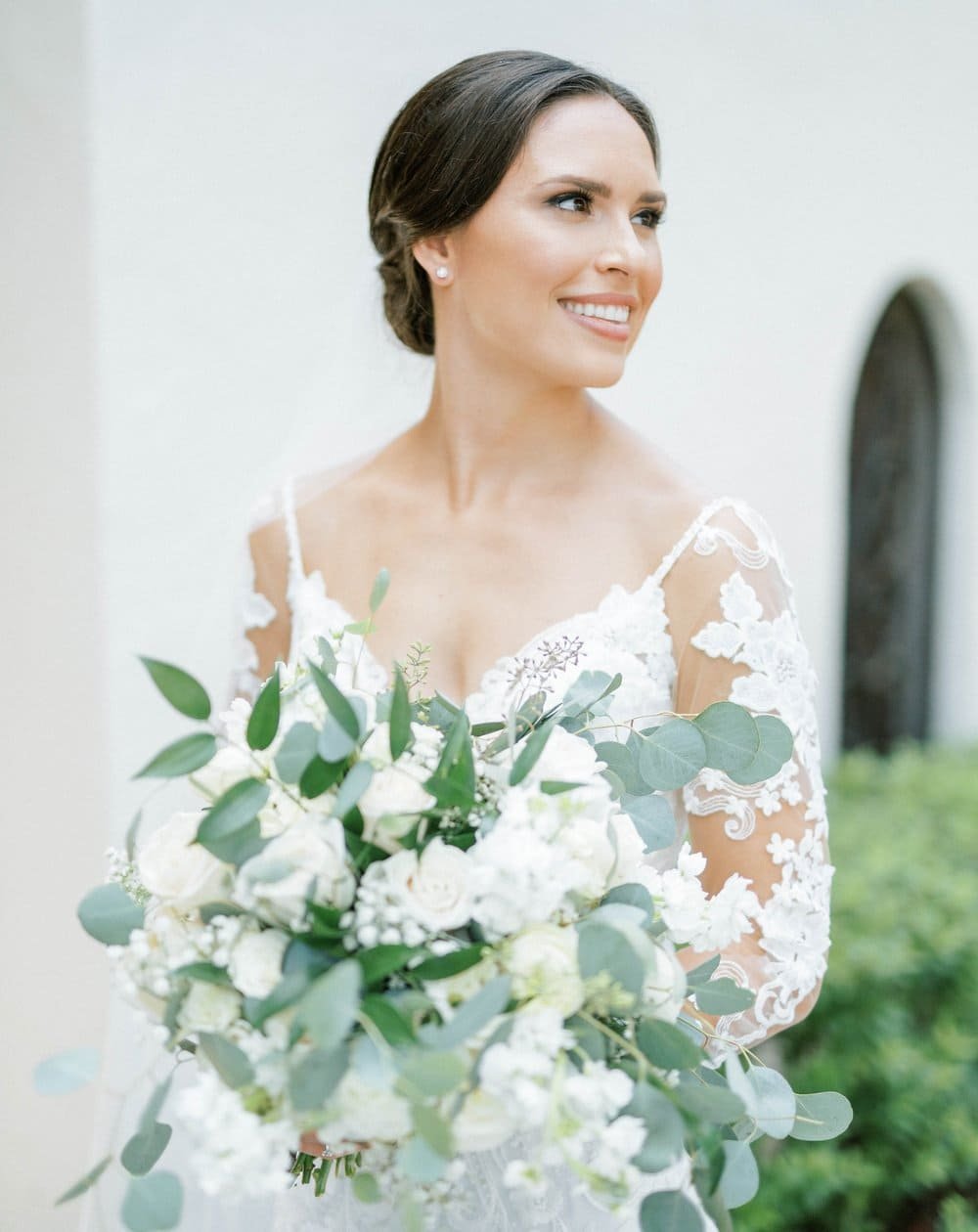When you picture a bridal bouquet, does your mental image include roses, peonies, or baby’s breath?
It would make sense if it did since those blooms are among the all-time most popular flower choices for weddings. (Other top choices include the anemone, dahlia, calla lily, hydrangea, jasmine, lilac, orchid, ranunculus, sweet pea, and tulip.)
And while there are reasons why these blooms are selected so frequently — from the symbolism of roses to the beauty of orchids — there’s nothing wrong with going in a different direction. Maybe you’d like to add something with special meaning to you or to work in something a bit out of the ordinary.
Need a few seeds of inspiration? We can help.
Irises
These delicate blooms are a great way to add touches of dramatic color to your bouquet. Most people picture irises in a shade of purple, but you also can opt for shades of apricot and peach, brown, pink, white, yellow, dark cherry, and more.
Delphinium
Tall and striking, delphinium (also known as larkspur) is an extremely popular wedding bouquet choice, especially in the summer. This bloom is available in a wide range of colors, though the two most popular choices are white and baby blue. Carry it solo, in one or more colors, for a stunning bouquet.
Red Ginger
Roses and tulips aren’t the only flowers with special symbolism. Ginger plants symbolize strength and prosperity, and red ginger, in particular, represents fiery passion: all of which bode well for a happy marriage.
These vivid flowers are ideal if you want your bouquet to have a tropical theme—or if you simply want to add some pizazz to your bouquet.
Kale
We’re cheating a bit with this suggestion because while Kale doesn’t exactly make the list of all-time favorite wedding bouquet flowers, it has been a trendy choice lately, particularly for rustic weddings.
“Flowering Kale creates a very natural and captivating farm to table look,” notes FiftyFlowers.com. “These rosette blooms can be used as a striking focal or filler flower.”
Herbs
Kale is one of many options for infusing creativity into your bouquet. Herbs can contribute delicate scents and unique visual appeal as well. And while herbs are making a comeback today, including them in bouquets is a tradition that goes back centuries. Herbs that lend themselves well to bouquets include eucalyptus, lavender, mint, rosemary, and sage. An added bonus: Many of these herbs have calming properties, perfect for those moments just before you begin your walk down the aisle.
Protea
Interest also has been building in the protea, or sugarbushes, from South Africa. Varieties include the big king protea, the pincushion protea, and the blushing bride protea (sounds like a perfect bouquet choice).
“The blushing bride protea is ideal for the bride who likes flowers that are classics with a modern twist,” the Fluid Petal writes. “The flowers have a blush-colored center, with pointed petals that range in color from snowy white and ivory to cream with tinges of pale pink. The delicate blooms are feathery and light, giving your florals an ethereal feel.”
Butterfly Ranunculus
These flowers are known for their “dainty, iridescent petals” and lend themselves especially well to bouquets.
“The ranunculus butterfly is a lovely option as a secondary bloom for a more organic or garden-style bouquet, since it features multiple flowers on each stem,” Roots Floral Design writes.
Carnations
This underrated flower is just starting to gain traction as a wedding bouquet choice.
“There are many antiquated opinions about carnations; some people believe they are cheap flowers. They are cost-effective, but not cheap looking,” florist Teresa Eoff told Brides magazine.
Carnations are durable and can add an element of lushness to a bouquet.
Cosmos
These five-petaled flowers can add a romantic element to your bouquet.
In addition to white and pink cosmos, you can opt for the dramatic appearance of brownish-red chocolate cosmos.
Go Texas
Our Houston-based venue frequently serves clients who are proud of their Texas ties. If that describes you, maybe you’ll want to add plants native to the Lone Star State to your bouquet.
Texas is especially well known for its gorgeous wildflowers, the bluebonnet in particular.
A few additional choices include daffodils, hyacinth, vivid Indian paintbrush, and purple coneflower.
Whether you go with a traditional blend of flowers, something more unique, or a combination of both, just remember that the ultimate goal is to create a bouquet that adds to the joy and beauty of your day. If it feels right to you, you’ve succeeded.

